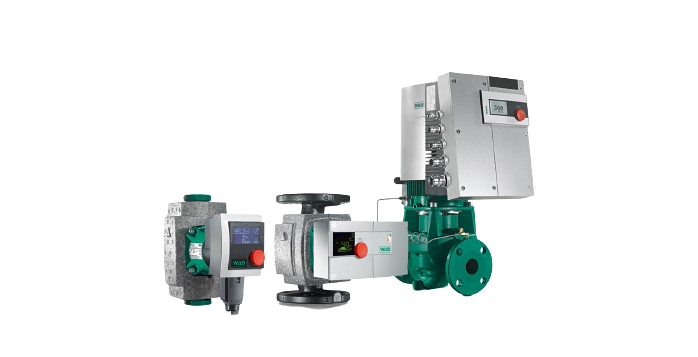Water pumps are incredibly adaptable pieces of equipment that may address a wide range of issues and make your life easier than you ever imagined.
Water pumps are ideal equipment for transporting water from one area (a basement) to another. They range from sprinkler pumps for your lawn to well pumps in your home, trash pumps on the job site, submersible utility pumps, and water pumps for flood cleanup (outside).
What to Look for When Buying a Water Pump
There are numerous aspects to consider when selecting the best water pump for your application. The sections below outline the most significant factors.
Electric Water Pumps
Indoors, electric-powered water pumps are ideal. The majority of them are 120V and may be plugged into a typical household socket. If you choose the 230V option, make sure you have the necessary electrical wiring. Electric water pumps, while not as strong as gas-powered devices, will require less maintenance because you won't have to bother with oil changes or other routine maintenance. If you have mobile pumping demands, go with a gas-powered model because you'll need to run these within an extension cord's length from an electricity source.
Gas Water Pumps
Irrigation is often done with gas-powered water pumps on job sites and farms. These pumps can transport up to 750 gallons of water per minute when equipped with powerful engines (GPM). A gas-powered dewatering pump is ideal for moving large amounts of water
Water Pump Applications
The application of the pump is the second most significant factor to consider when selecting a water pump. Water pumps come in a variety of shapes and sizes, each designed for a specific purpose.
Pumps that transport clean water from one location to another are known as dewatering pumps.
Trash pumps are used to quickly move big amounts of unclean water.
Takeoff with a Bang (PTO) Tractor-driven pumping systems.
Pumps for various water removal applications that are submersible.
Booster Pumps are used to boost the pressure in your water faucets.
Sprinkler Pumps are used to irrigate lawns, gardens, and agriculture.
Pumps for shallow and deep well systems in residential settings.
Pond, fountain, sprinkler, pool, and other specialty water pumps.
How to Properly Size a Water Pump
The next step in selecting the best water pump is to ensure that it is properly sized. The most significant parameters to consider when sizing a water pump are GPM/PSI ratings, water and hose inlet/outlet sizes, total head lift (measured in vertical feet), and horizontal water pumping distance.
Important Ratings:
The total head lift (THL), suction head (SH), and gallons per minute (GPM) ratings are all significant variables to consider when sizing a water pump since they define how much water the pump can move and how quickly it can do so.
The vertical distance pumped from the water source to the pump is known as the suction head. The higher you need to pump water, the more difficult it is for the pump to overcome gravity. This value is very significant when drilling a deep well or emptying a pond.
The overall height from the water source to the end destination is known as total head lift. This figure represents the estimated "power" of a pump to carry water over a long distance.
Gallons Per Minute (GPM) is a measurement of how many gallons a pump can move in a given amount of time.





 StableDiffusion
StableDiffusion
 full parking
StableDiffusion
full parking
StableDiffusion


 Photo by
Photo by 



